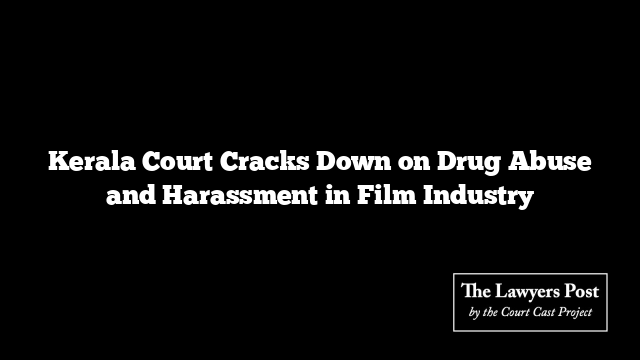The Kerala High Court has ordered the Special Investigation Team (SIT) to expand its inquiry into the Malayalam film industry, demanding that investigators also focus on the rampant use of alcohol and drugs on film sets and related workplaces. This directive emerged during hearings tied to the explosive Hema Committee report, which has exposed a troubling nexus of sexual harassment and misconduct in the industry.
A special bench, comprising Justice AK Jayasankaran Nambiar and Justice CS Sudha, responded to advocate TB Mini’s plea to impose stricter controls on substance abuse at shooting locations. The Court underscored the need for decisive legal action, stating that unchecked alcohol and drug use contributes to a hostile work environment, exacerbating the industry’s ongoing crisis of exploitation.
The judges emphasized that the SIT’s investigation must be thorough and future-proof, ensuring that preventive measures are in place beyond the current probe. “Necessary steps shall be taken as and when required to prevent such rampant use,” the Court noted.
The Hema Committee report—commissioned by the Kerala government in 2017 after the ‘Women in Cinema Collective’ highlighted widespread gender-based issues—has already shaken the film world, implicating several high-profile figures in sexual misconduct, including allegations of rape. Though only a redacted version of the report was made public, the Court has reviewed the complete findings, confirming that they contain evidence of serious, prosecutable offenses.
In its directive, the Court instructed the SIT to treat the witness accounts outlined in the report as formal information under the Bharatiya Nagarik Suraksha Sanhita (BNSS) of 2023. The investigation must be carried out according to legal protocols, ensuring both the anonymity of survivors and the integrity of the process. The bench stressed that victim identities must remain confidential: “The victim’s name shall be masked in the FIR, and no personal information will be disclosed.”
The Court also provided clear guidelines on handling the final report. The accused will only gain access once the investigation concludes, and investigators must assess whether sufficient evidence exists to proceed with prosecution. If not, a referral report must be filed in accordance with Section 176 of the BNSS. Crucially, the Court reiterated that no pressure should be placed on victims or witnesses to provide testimony, placing the onus on the SIT to seek out willing participants.
During the hearing, it was noted that several parties involved have yet to respond to the State’s counter affidavit. The Court granted them additional time, scheduling the next session for October 28.
This latest order reflects the judiciary’s growing impatience with the industry’s failure to self-regulate and signals a zero-tolerance stance toward both substance abuse and systemic harassment. With mounting pressure on the SIT to act decisively, the coming weeks could mark a turning point for accountability in the Malayalam film industry.





